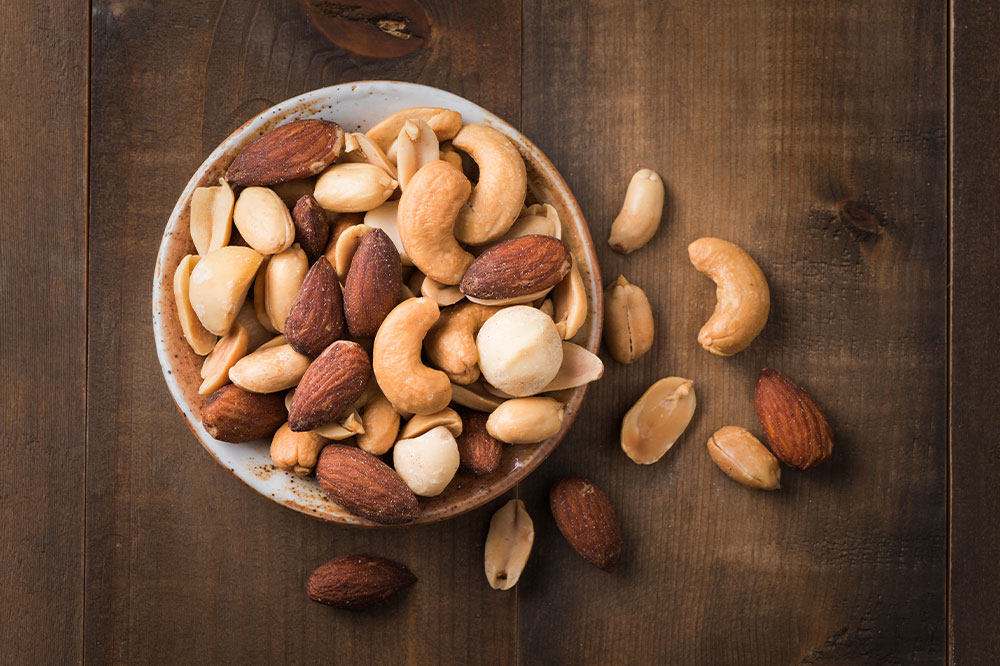3 foods to avoid for better lung health

Strengthening the lungs can help one avoid respiratory issues and diseases. Even when diagnosed with a lung-related illness, making significant changes to the lifestyle and food regimen can help people manage the symptoms and restore lung function. However, it is equally important to avoid the food items that damage these organs and cause issues like inflammation, sneezing, and wheezing. Here are a few foods to avoid to improve lung health:
Salty food
Foods with excessive salt should be avoided as their long-term consumption can have severe consequences on the overall health. Excess sodium in such food items can enlarge the muscles of the heart, cause headaches, increase blood pressure, and lead to a wide range of kidney-related issues like stones. Such foods can also have a negative effect on the health of the lungs and have been linked to an increased risk of bronchitis. Additionally, too much salt in meals can also worsen the symptoms of respiratory issues like asthma. This is because sodium can cause fluid retention, leading to shortness of breath in those with lung diseases. To reduce its intake, one should start by limiting salt in their meals and instead add more herbs and spices as seasoning. A lot of sodium is already added to the foods people purchase, so one must check the labels and ingredients for adequate sodium content beforehand. One can also cut back on their salt intake by avoiding processed and packaged foods such as salted nuts, crackers, and chips.
Dairy products
For those diagnosed with lung disease, milk or other dairy products can worsen their symptoms. This is because in the digestion of dairy products like milk, cheese, or ice cream, a breakdown product known as casomorphin is released. This component is known to increase mucus and phlegm buildup in the stomach and respiratory tract during flare-ups of asthma or other lung conditions such as chronic obstructive pulmonary disease (COPD). This mucus can induce coughing and even lead to wheezing and pain. Dairy products are also known to inflame the tissues of the respiratory tract. Traditional milk can be substituted for safer alternatives like almond, soy, or oat milk.
Processed meats
Studies have suggested a link between processed, cured meats and poor lung function. This is because processed meats contain nitrites that are added (as nitrates) to processed foods to improve the color as well as the shelf life of the product. However, nitrites can lead to inflammation in the lungs and even damage the organs. Processed meat has also been linked to other chronic conditions such as high blood pressure, COPD, and even cancer. Common types of processed meats that contain nitrates are bacon, ham, and sausages. To avoid damage to your lungs, you can opt for fresh meat or choose packaged meats that come with a “no nitrates” tag.
Additionally, one must try avoiding carbonated drinks, fried foods, white bread, potato chips, and chocolates, as these foods can increase the inflammation in the lungs and worsen lung disease symptoms. Instead, these foods can be replaced with items that can boost lung function, i.e., tomatoes, leafy greens, and even apples.
Treatment options
While foods can boost lung function, respiratory issues should be addressed by seeking treatment. Doctors can recommend the right treatment options to relieve severe symptoms and slow down the progression of the disease. Here are some of the most popular treatments for lung-related issues:
Tezepelumab: In 2021, the FDA approved the use of Tezspire, which is the brand name for tezepelumab, for severe asthma. It is the first and only biologic treatment that consistently reduces severe asthma symptoms across a wide range of patients. It is mainly used as an add-on treatment in adults and children over the age of 12 who are affected by severe asthma. The side effects of this treatment include hypersensitivity or allergic reactions, pharyngitis, and even back pain.
Fasenra: Doctors recommend this treatment option for adults affected by a rare type of asthma—eosinophilic asthma. It is used as an add-on treatment where the symptoms can not be adequately controlled using other treatment options. Fasenra works by activating the immune system to kill the excess eosinophils in the body. Common side effects of this option are headaches and sore throat.
NUCALA®: Another treatment option for eosinophilic asthma, NUCALA® is suitable for adults and children over the age of 12. It can prevent asthma attacks and reduce the need for other treatment options. It can also improve one’s breathing, along with providing relief from asthma symptoms. Common side effects include infections, allergic reactions, back pain, and fatigue.
XOLAIR®: This is a subcutaneous injectable treatment for severe asthma in adults and children over the age of 6. XOLAIR® can also be used to treat nasal polyps in individuals above the age of 18. Common side effects include low blood pressure, dizziness, fainting, hives, and even swelling in the throat.
Zyrtec: This is an oral treatment that relieves allergy symptoms like runny noses, itching eyes, sneezing, and even hives. Zyrtec may also be prescribed to treat hay fever. Common side effects are drowsiness, fatigue, and dry mouth.



